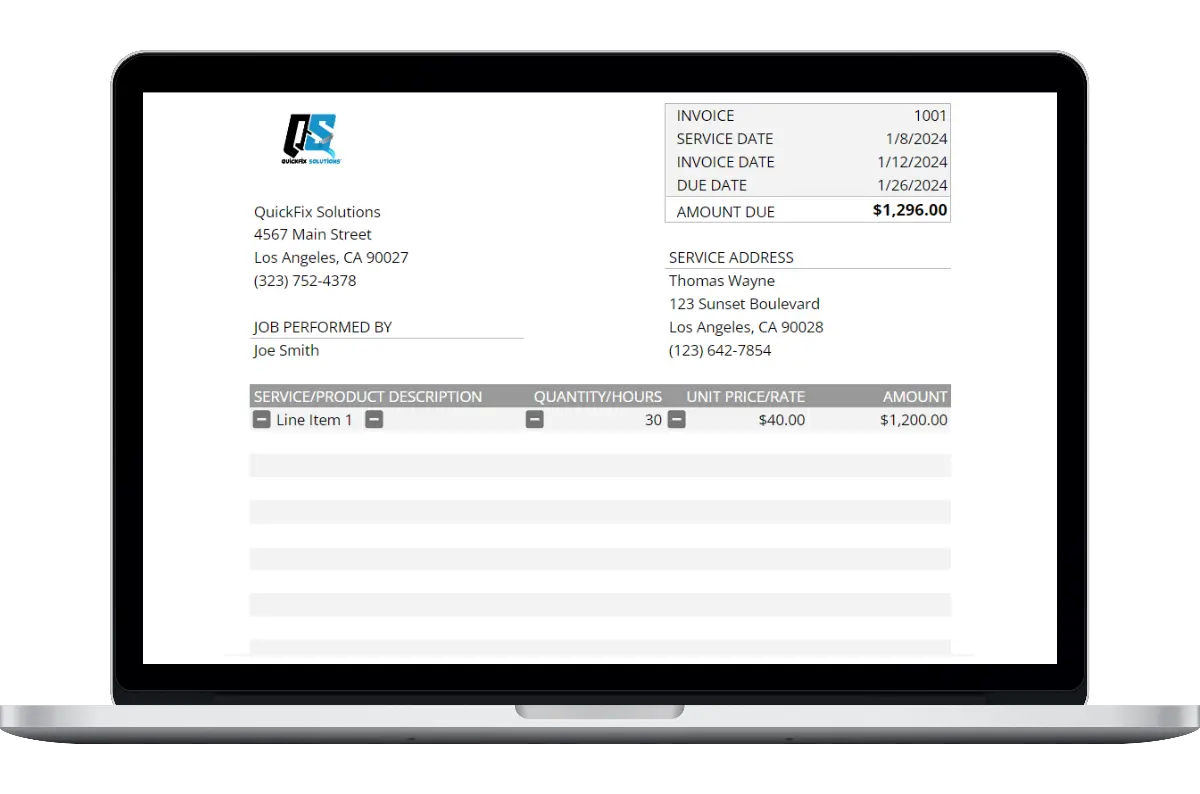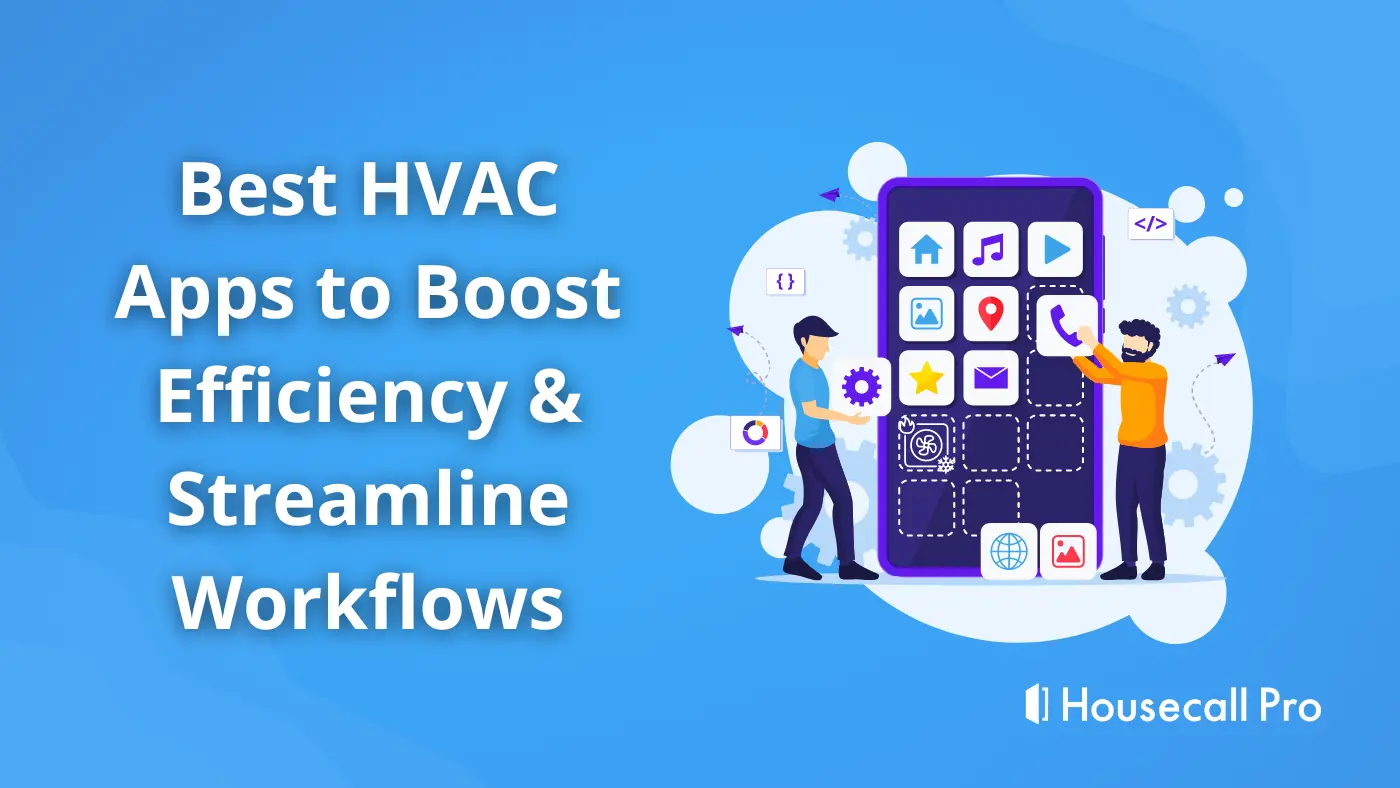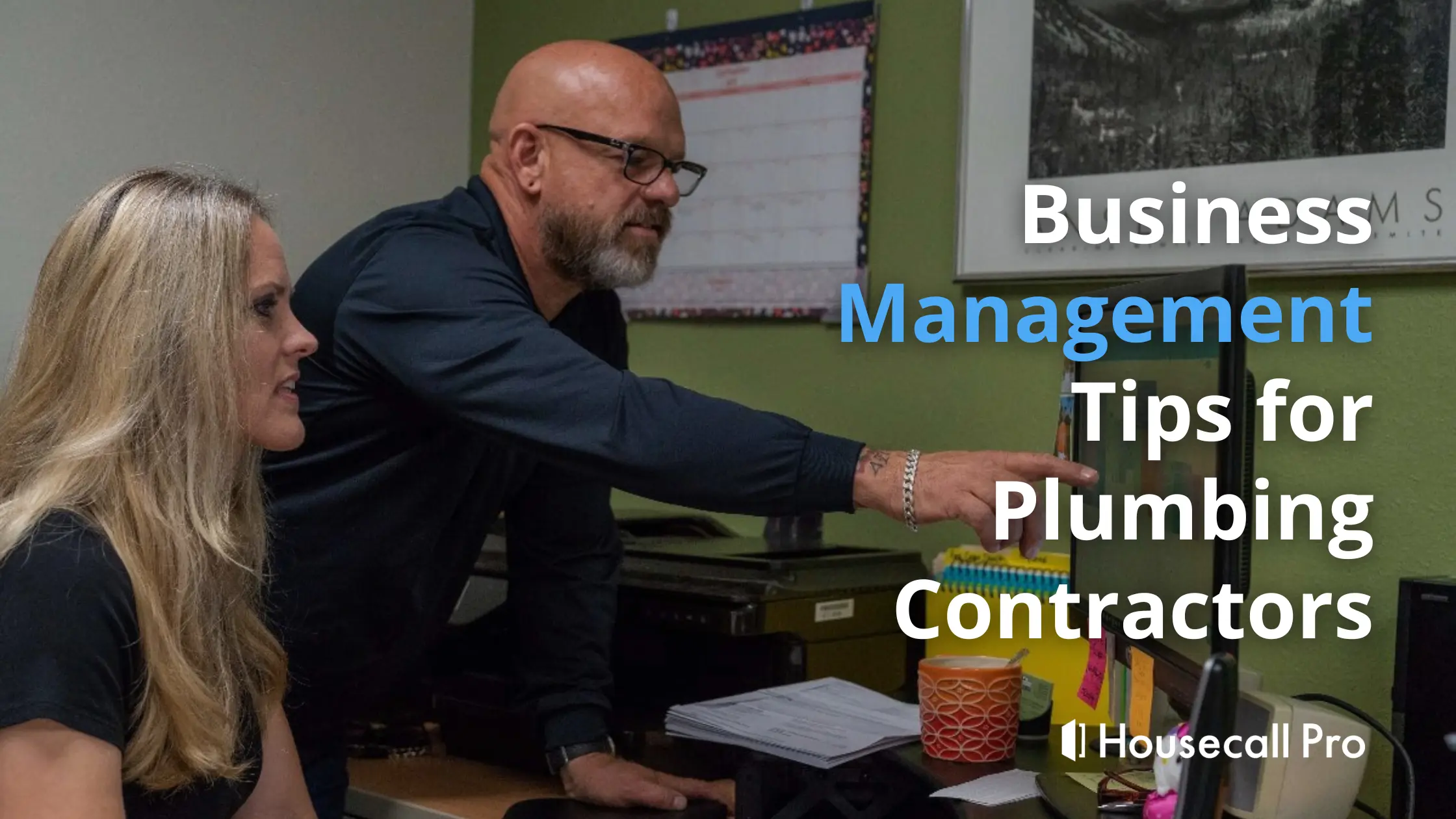
Running a successful plumbing business isn’t easy. It means long hours, the ability to juggle multiple things at once, and being available on short notice to care for a customer’s urgent needs. And while you might be a great plumber, and even a great leader, managing all that back-office stuff can be draining. You get one thing wrong and it can lead to missed appointments, unhappy customers, and revenue that is going in the wrong direction.
In this article, we’ll share what you need to know about effective plumbing business management. If your plumbing business is struggling to be as productive and profitable as you believe it can be, then these tips are designed just for you.
- 5 Key Components & Systems for Effective Business Management
- Make Managing Your Plumbing Business Easy With These 10 Tips
- 1. Streamline Job Scheduling with Online Booking
- 2. Optimize Routing with GPS Tracking
- 3. Improve Invoicing and Payment Processing
- 4. Focus on Providing Exceptional Customer Service
- 5. Automate Marketing and Promotional Campaigns
- 6. Invest in Team Training & Development
- 7. Partner With Complimentary Businesses
- 8. Automate Recurring Service Agreement Plans
- 9. Streamline Customer Reviews and Feedback
- 10. Help Customers Afford Premium Services With Flexible Financing
- Invest in Plumbing Business Management Software
5 Key Components & Systems for Effective Business Management
So here’s the thing. Many trade-specific business owners start their companies because they are great at what they do. They might be excellent electricians, landscapers, cleaners, or professional plumbers. But, what they don’t often realize is that being good at the trade alone, is just not enough. There are some other things that they need to master to drive their business forward. Here’s what you need to master for effective business management.
Marketing & Lead Generation
Word-of-mouth can go a long way in filling your pipeline with a steady stream of plumbing leads. But, the fact is that it will only get you so far. If you want your business to scale and grow, you need to rely on more than just happy customers from the past. That’s where marketing and lead generation come into play. You can build a steady stream of new business by promoting your plumbing services and reaching out to potential clients. This involves understanding your target audience and finding the best ways to reach them.
Some common marketing tactics include:
- Building a professional, mobile, and SEO-friendly website.
- Using social media platforms like Facebook, LinkedIn or TikTok.
- Running paid Google Local Service Ads, or Facebook.
- Creating valuable, helpful content (blogs, videos).
- Engaging in email marketing.
- Networking within your local communities.
- Encouraging customer reviews and referrals.
- Offering promotions and discounts through digital and traditional marketing channels.
Sales
Plumbing is a bit of a unique business in that much of your work comes in because something has gone wrong. A homeowner has a leaky pipe, no hot water, or worse, perhaps a pipe has burst. When these things happen, they need help—now. So in these cases, you don’t need to do much to sell your plumbing services. If a customer believes you can help them and your price won’t rake them through the coals—you’re hired.
But, there are other cases when some salesmanship is a must. Of course, you don’t want to come off too strong with unethical plumbing sales techniques that’ll drive customers away. For example, when offering maintenance services, upgrades, or new installations, on tankless water heaters you need to convince customers of the long-term benefits. Building trust and showcasing your expertise can make a significant difference in closing these types of sales.
Customer Service and Communication
Ah, yes, customer service. If a customer has a poor experience, they will be unlikely to call on you again and tell their family members and friends about it. An adage implies that an unhappy customer will tell between nine and 15 people about that bad experience. That’s not good for your business.
Don’t let that happen to you. Prioritize excellent customer service and communication with your clients. Here are a few tips on how to do it.
- Answer calls quickly and professionally.
- Be polite and respectful.
- Keep appointments on time.
- Communicate clearly about services and costs.
- Follow up after the job is done.
- Handle complaints professionally.
- Show appreciation for their business.
- Train your team on customer service skills.
Financial Management and Pricing
They say 82% of small businesses fail because of cash flow problems. Poor cash flow can stem from ineffective inventory management, poor budgeting, and overspending, or a lack of funding.
But this doesn’t need to happen to you. Here are some tips to help you stay on top of your financial management and pricing.
- Create a detailed budget
- Track all expenses and income
- Use accounting software
- Monitor cash flow regularly
- Set aside emergency funds
- Invoice clients promptly
- Control inventory efficiently
- Conduct market research on pricing
- Review and adjust prices as needed
- Seek financial advice if necessary
Employee Management and Training
For most small businesses, you can’t simply hire a new employee and send them off to their first job without some training. Sure, they probably have the licenses and certifications to do the job lawfully, but that doesn’t mean ongoing training isn’t worthwhile.
The best leaders provide effective coaching and ongoing training for their teams. And they don’t necessarily expect their employees to take that training on their dime. To help your team of plumbers be as effective as possible and to make them want to work better and harder for your plumbing company, offer ongoing training.
Be sure to do these things as well.
- Set clear expectations.
- Provide regular feedback.
- Recognize and reward good performance.
- Encourage teamwork.
- Offer mentorship opportunities.
- Develop a positive work environment.
- Promote work-life balance.
- Address issues promptly and fairly.
- Support professional development.
- Communicate openly and honestly.
Make Managing Your Plumbing Business Easy With These 10 Tips
Now that you know some of the basics for effective business management, let’s get more specific about plumbing business management—those things specific to your trade that will result in highly engaged employees, a great team environment, satisfied customers, and profitability.
1. Streamline Job Scheduling with Online Booking
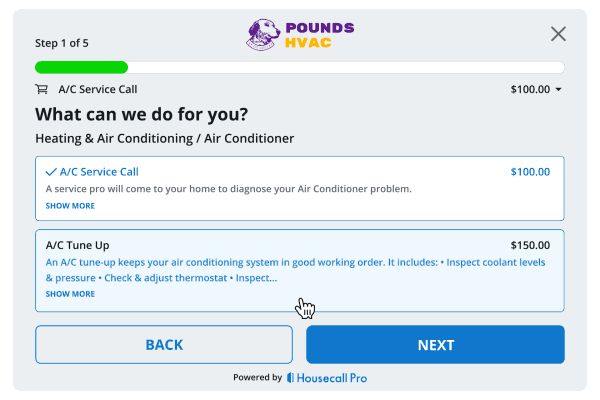
Gone are the days when customers would flip through the Yellow Pages to find a plumber, call, and schedule an appointment over the phone. Today’s consumers are tech-savvy and spend a lot of time online. This means that your business needs to have a robust online presence, and online booking needs to be one option you offer your customers.
Online booking makes it easy for customers to schedule appointments anytime, even outside of business hours. It reduces the chances of scheduling errors and double bookings. Plus, it shows customers that you’re modern and efficient, giving you an edge over competitors.
Remember that most customers today don’t want to wait for your plumbing business to open to call you. They want to schedule the appointment as soon as the problem or need arises. Online booking is a win-win for both you and your customers.
2. Optimize Routing with GPS Tracking
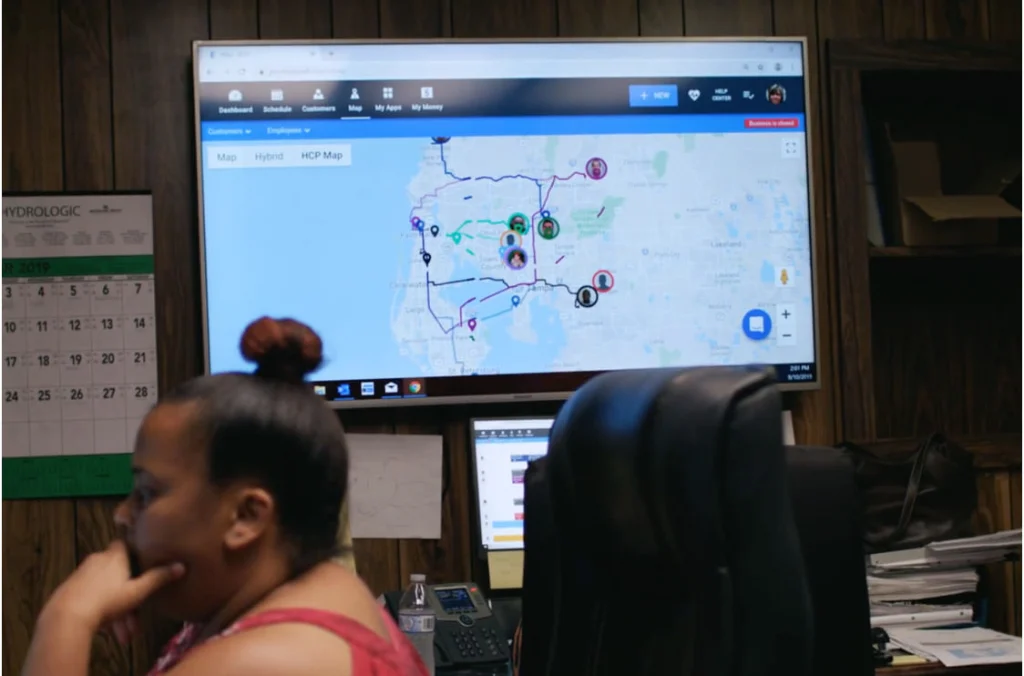
Don’t you hate getting stuck in traffic? We don’t think anyone has ever said they enjoyed being late to a meeting or appointment because they were stuck in bumper-to-bumper traffic. Road congestion, road closures, detours, and endless construction projects can make it challenging to get from point A to point B.
For plumbers, specifically, delays due to traffic can create customer disappointment and can make a plumbing situation worse. That’s why GPS tracking can be so beneficial.
GPS tracking allows you to see the real-time location of your plumbing vehicles and find the fastest routes to job sites. It helps avoid traffic delays, optimize travel routes, and reduce fuel costs. This means your plumbers can reach customers quicker, increasing efficiency and customer satisfaction.
3. Improve Invoicing and Payment Processing

Remember how we talked earlier about cash flow challenges for small businesses and it is a key reason businesses fail? Seriously, don’t let that happen to you. You’re in the business of making money, right? So, be sure to prioritize your invoicing and payment processing.
This involves everything from invoicing your customers correctly, making it easy for them to pay, and ensuring you can pay your bills on time. The last thing you need is to be shut off from one of your suppliers because your payments are overdue. Poor invoicing and payment processing can lead to delays in receiving payments, disputes with customers, and difficulty managing your expenses.
Here are some risks of poor invoicing and payment processing:
- Late payments.
- Cash flow problems.
- Unhappy customers.
- Increased debt.
- Service interruptions.
- Damaged reputation.
- Supplier issues.
- Legal troubles.
Free resource: Guide to Credit & Mobile Payments Ebook
4. Focus on Providing Exceptional Customer Service

Providing great customer service needs to be a non-negotiable for your business. And it all starts with ensuring you and your team are on the same page. Start by setting clear customer service standards and communicate them to your team.
Make sure everyone understands the importance of being polite, professional, and responsive. Train your employees on how to handle various customer interactions, from initial inquiries to follow-ups after the job is done. Role-playing scenarios can be a helpful way to prepare for real-life situations.
Make it easy for customers to get in touch with you. Offer multiple channels of communication, such as phone, email, and live chat, and ensure that someone is always available to respond promptly. Keep your customers informed throughout the service process, providing updates and addressing any concerns they might have.
Learn how to convert a one-time plumbing job into a longtime relationship: The Ultimate Guide to Customer Experience for Home Service Companies
Encourage feedback from your customers and use it to improve your services. Positive feedback can motivate your team, while constructive criticism can help identify areas for improvement. Recognize and reward your employees for outstanding customer service to reinforce its importance.
Finally, go the extra mile. Small gestures, like a follow-up call to ensure customer satisfaction or a handwritten thank-you note, can leave a lasting impression. By making exceptional customer service a priority, you can build strong relationships, foster customer loyalty, and set your plumbing business apart from the competition.
5. Automate Marketing and Promotional Campaigns
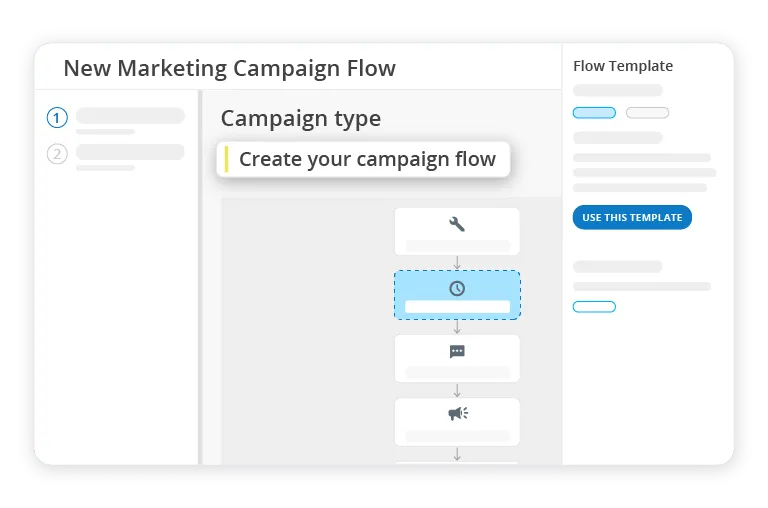
As we suggested earlier, marketing and lead generation needs to be a priority. But, it can be hard to focus on marketing efforts when you are out in the field tending to customer issues. Thankfully, there are things you can do to automate the process or at least make it a lot easier.
Use marketing automation tools to schedule social media posts, send out email newsletters, and manage online ads. These tools can save you time and provide consistent communication to your audience. For example, you can set up automated email campaigns to follow up with potential leads or to remind past customers of maintenance services.
Additionally, adding high-quality content to your website regularly is a must for search engine optimization (SEO). Blog posts, how-to guides, and customer testimonials can help improve your website’s ranking on search engines, making it easier for potential customers to find you. Prioritize review management too so that you know what customers are saying about you online—more on this later. Finally, use keyword research to identify popular search terms related to plumbing and incorporate them naturally into your content.
6. Invest in Team Training & Development

Your plumbing technicians deserve to work for a plumbing company that is invested in their growth. Consider the following adage:
The CFO asks the CEO, “What happens if we invest in developing our people and they leave us?” The CEO responds, “What happens if we don’t, and they stay?
This is something to keep in mind when deciding how and when to invest in your employees. Not only will it make them better at what they do, but they’ll appreciate the time and expense you are putting into their development.
For the plumbing industry in particular, consider companies such as TradesmanCE.com or Watts. What’s the worst thing that can happen if your employees receive great training and become better at their jobs? They become more confident, efficient, and motivated, leading to higher job satisfaction and retention, which ultimately benefits your business.
7. Partner With Complimentary Businesses
While plumbing is vital for homes and businesses, it is just one trade. To truly expand your revenue potential and the value you bring to your customers, consider partnering with complementary businesses.
Forming alliances with other trades can lead to mutual referrals and bundled service packages. For example, teaming up with electricians, HVAC technicians, or construction companies can provide a more comprehensive service offering to your clients. When a customer needs multiple services, being able to recommend trusted partners can enhance your reputation and make you a one-stop solution.
Additionally, partnering with businesses like hardware stores or home improvement centers can open up opportunities for cross-promotions and special discounts. This not only boosts your visibility but also attracts more customers to your services. By collaborating with complementary businesses, you can create a network that supports each other, leading to increased business growth and customer satisfaction.
8. Automate Recurring Service Agreement Plans

One way to keep your plumbing business running smoothly is to automate recurring services. Many plumbing tasks, like annual inspections, regular maintenance, and seasonal check-ups, need to be done on a regular basis. Instead of manually tracking these appointments, use software to set up automatic reminders and scheduling.
By automating these services, you make sure your customers never miss an important maintenance appointment. This keeps their plumbing systems in good shape and reduces the chances of emergency repairs. It also creates a steady stream of work for your business, helping to stabilize your income.
Automation can handle the reminders and scheduling for you, so you can focus on providing great service. Customers will appreciate the convenience, and you’ll build long-term relationships with them. Regular, reliable service can lead to more word-of-mouth referrals and a loyal customer base, benefiting your business in the long run.
9. Streamline Customer Reviews and Feedback
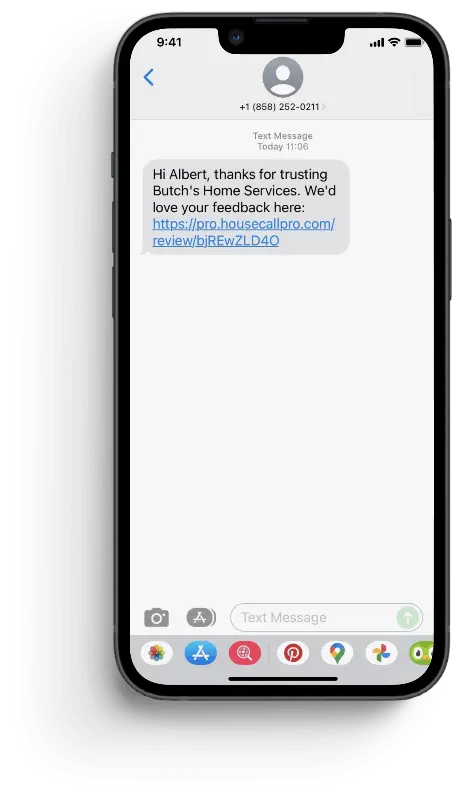
We briefly mentioned earlier the importance of review management, which is typically a function of the marketing team. However, this is a big one and deserves a bit more attention. Remember how we talked about word-of-mouth advertising? Well, online reviews are like the modern approach to word-of-mouth. People go online and tell others about their experiences working with you. They may share reviews on Google, TrustPilot, or directly through your own website.
It’s so important to pay attention to what customers are saying, and not just for the reasons that might come to the top of your mind. Consider the following:
- Identify customer satisfaction levels.
- Improve your services based on feedback.
- Build trust and credibility.
- Attract new customers.
- Grow your search engine ranking.
- Address and resolve issues promptly.
- Show customers you value their opinions.
- Spot common themes as red flags for needed changes.
10. Help Customers Afford Premium Services With Flexible Financing
Last but not least, do not underestimate the value of financing options for your customers. Most plumbers charge somewhere between $45 and $200 per hour. And, there can be some sizeable expenses for customers—such as replacing a water heater or water softener. When these expenses come around, your customers might not have the cash lying around. Plus, with the average interest rate on credit cards around 24.8%, people might not want to use their credit cards to fund the transaction.
Offering flexible financing plans can make these costs more manageable. Consider options like installment plans, low-interest financing, or deferred payment plans. Partner with financing companies that specialize in home improvement loans. By providing these options, you make it easier for customers to afford necessary repairs and upgrades, increasing your chances of securing the job and enhancing customer satisfaction.
Invest in Plumbing Business Management Software
If your plumbing business has been successful to date, we salute you. Managing a business can be challenging, but when done well, it can be rewarding not just for you, but for your customers and the community at large.
That said, every business owner that we have ever met has told us that they could benefit from smarter business management with plumbing software. This is where Housecall Pro can help. We encourage you to check out the various software options that we have available for plumbing contractors. No matter if you’re a small one-man plumbing operation or a large commercial plumbing contractor with multiple locations. From sales to marketing and customer management, we have a solution just for you. Take a chance with our free 14-day trial today.

